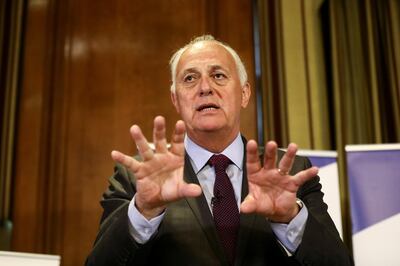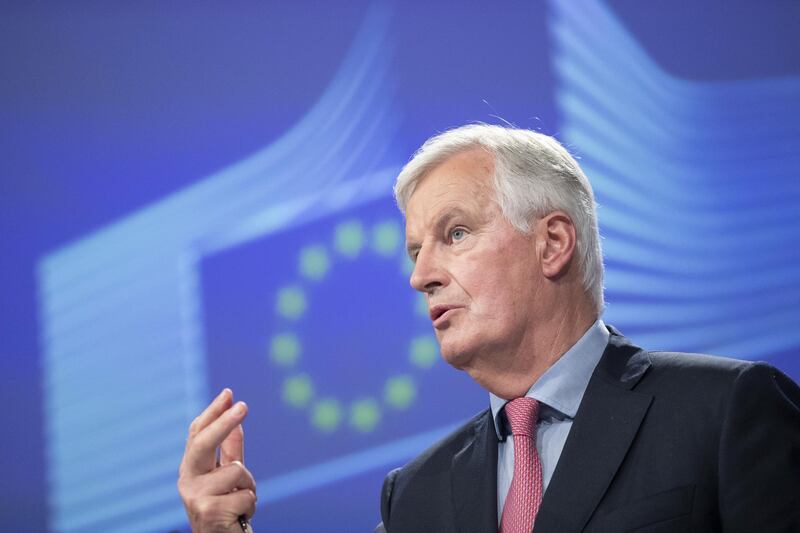The EU’s chief Brexit negotiator Michel Barnier has criticised the British government’s proposal to avoid a hard border with Ireland.
The so-called "backstop" plan proposed by prime minister Theresa May would temporarily tie the UK into existing EU customs rules if a trade deal was not in place by 2021.
Mr Barnier said on Friday he would examine the proposal “objectively”, but warned that the UK would not be able to take an “a la carte” approach to the single market.
He said the government’s plan, which is designed to avoid the possibility of border checks between Northern Ireland and the Republic of Ireland, “raises more questions than it answers”.
The EU had previously proposed keeping Northern Ireland aligned to the EU’s rules, essentially moving the border into the Irish sea, in an effort to avoid a hard border. However, this was rejected by Mrs May’s minority government, who are reliant on support from Northern Ireland’s Democratic Unionist Party (DUP).
Mr Barnier signalled that the EU’s plan could not be applied to the UK as a whole because it had been designed for Northern Ireland.
"Let me be clear: our backstop cannot be extended to the whole UK. Why? Because it has been designed for the specific situation of Northern Ireland,” Mr Barnier said.
He added: "Let's go back to pragmatism. Checks carried out on ferries are less disruptive than along a 500km-long land border. In addition, these checks can build on arrangements and facilities which already exist between the rest of the UK and Northern Ireland."
_______________
Read more:
Boris Johnson attacks Brexit plans and praises Trump in leaked remarks
Brexit: Theresa May averts crisis over 'backstop' customs plan
[ Labour seeks ‘soft Brexit’ in bid to inflict Commons defeat on May ]
_______________
Earlier on Friday an anti-Brexit campaign group backed by billionaire financier George Soros pledged to hold a second referendum before March 2019.
Best for Britain announced its campaign plan to secure a “people’s vote” on the Brexit deal agreed by Mrs May and the EU before the UK exits the bloc.
“There is simply no way through at the moment,” said Best for Britain chairman Mark Malloch-Brown at a launch event.
“The opposition is missing in action and the government cannot agree with itself,” he said. “Our politics has failed us. We’re still divided.”

For a second referendum to take place, the group would need a majority of parliamentarians to back an amendment to the government's Withdrawal Agreement and Implementation Bill (WAIB), which is due to be presented to the House of Commons in the autumn.
The amendment would commit the government to holding a national vote on whether or not to accept the Brexit deal secured by Mrs May before the UK’s exit date of March 29, 2019.
Best for Britain plan to start campaigning in 70 marginal constituencies over the summer with the aim of persuading parliamentarians from both parties to support a second referendum.
"This cannot be a debate fought out solely within the walls of Westminster. We’ll be talking to people on the doorstep about how Brexit is affecting them,” added Best for Britain CEO Eloise Todd.
“We’ll be ensuring MPs hear the voices of the voiceless, the perspectives of the people. We will go right to the heart of Britain and the core of the debate: in Doncaster, Stoke, and Mansfield - places where the anguish of the people before 2016 has so clearly shaped the political landscape after it. "
The leaders of the two main political parties in the UK, Labour and Conservative, have both ruled out holding a second referendum.
The group is said to be targeting Labour parliamentarians but will also need support from at least 10 rebellious Conservative lawmakers for the amendment to stand any chance of success.







